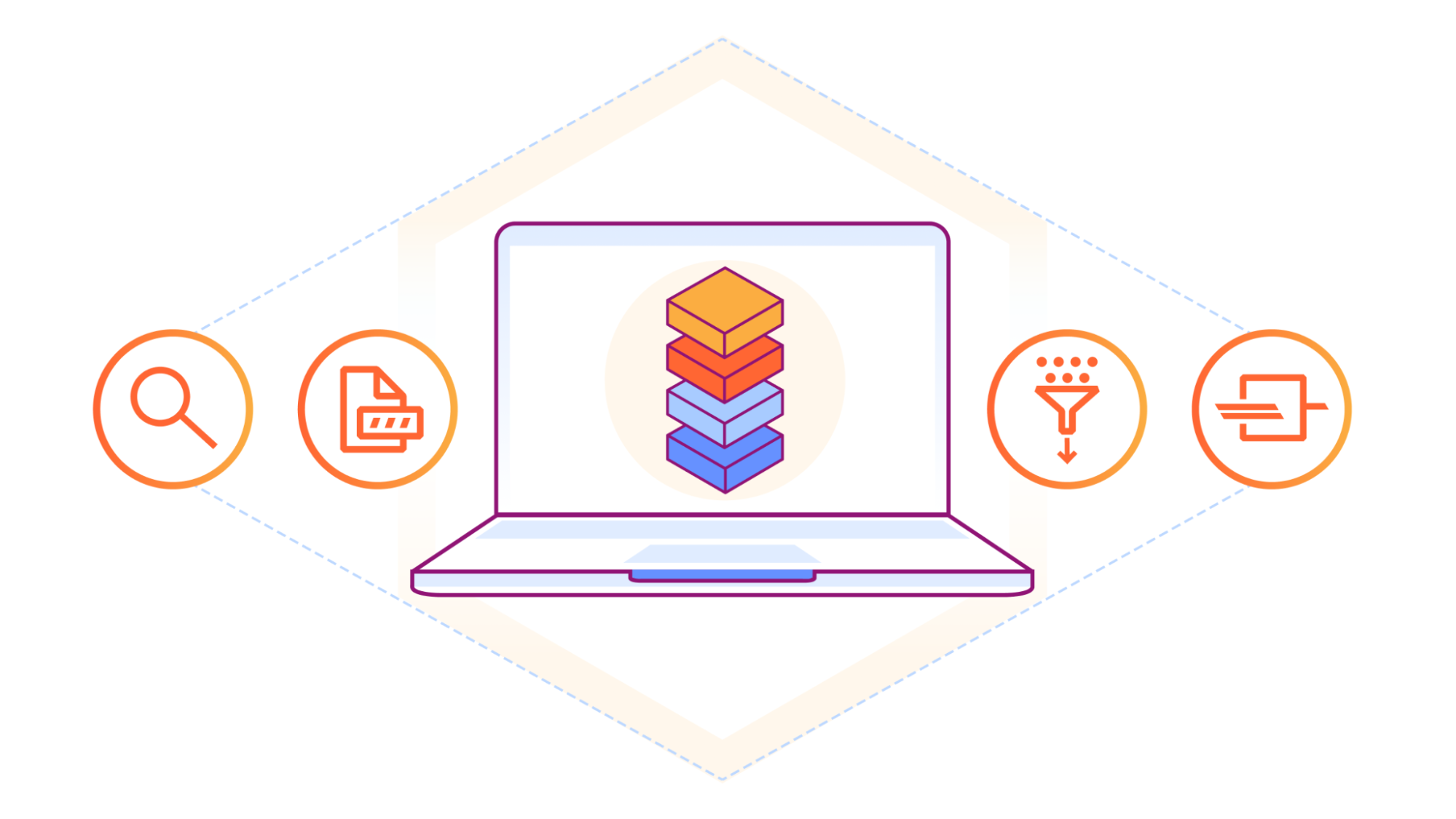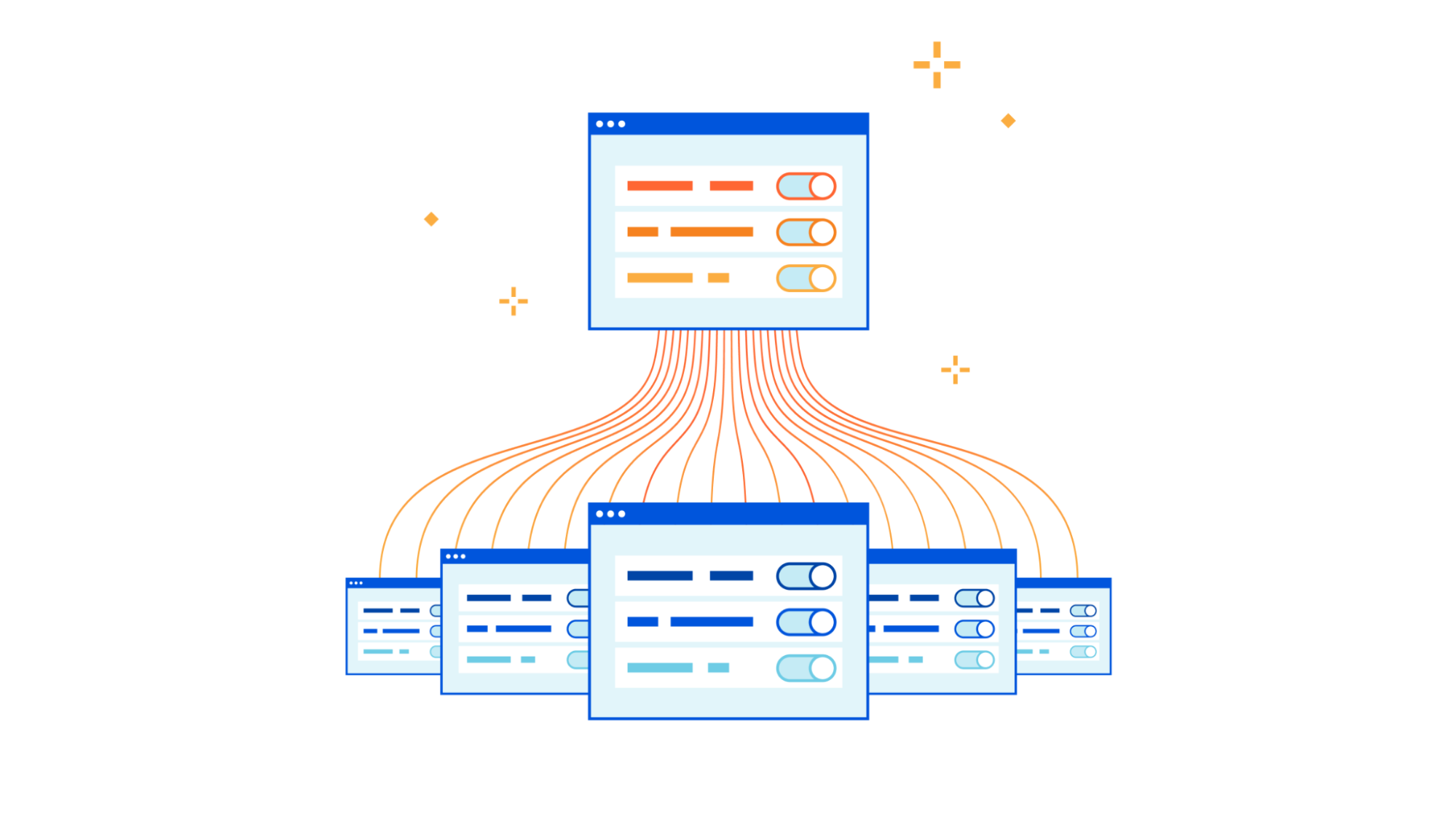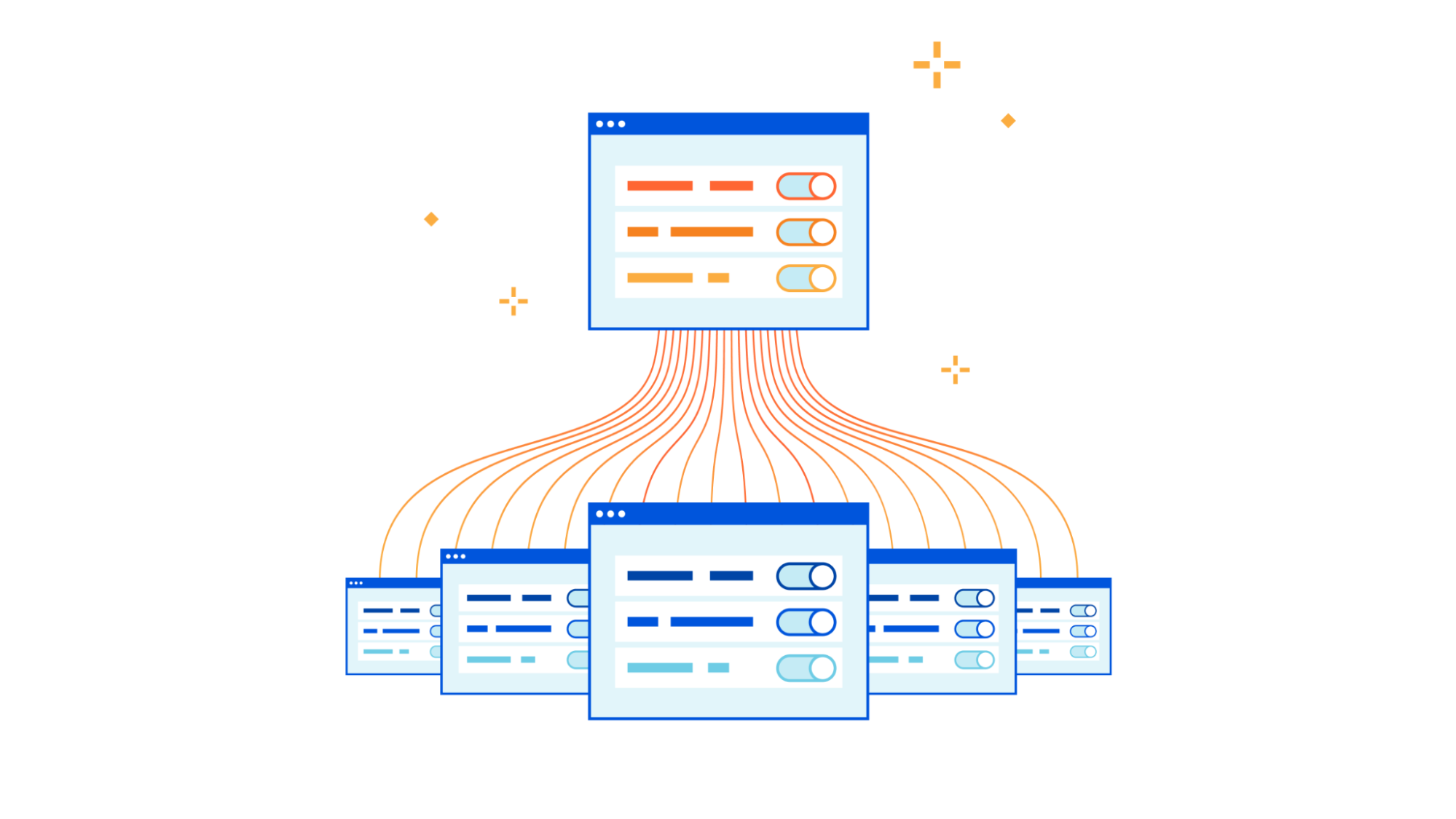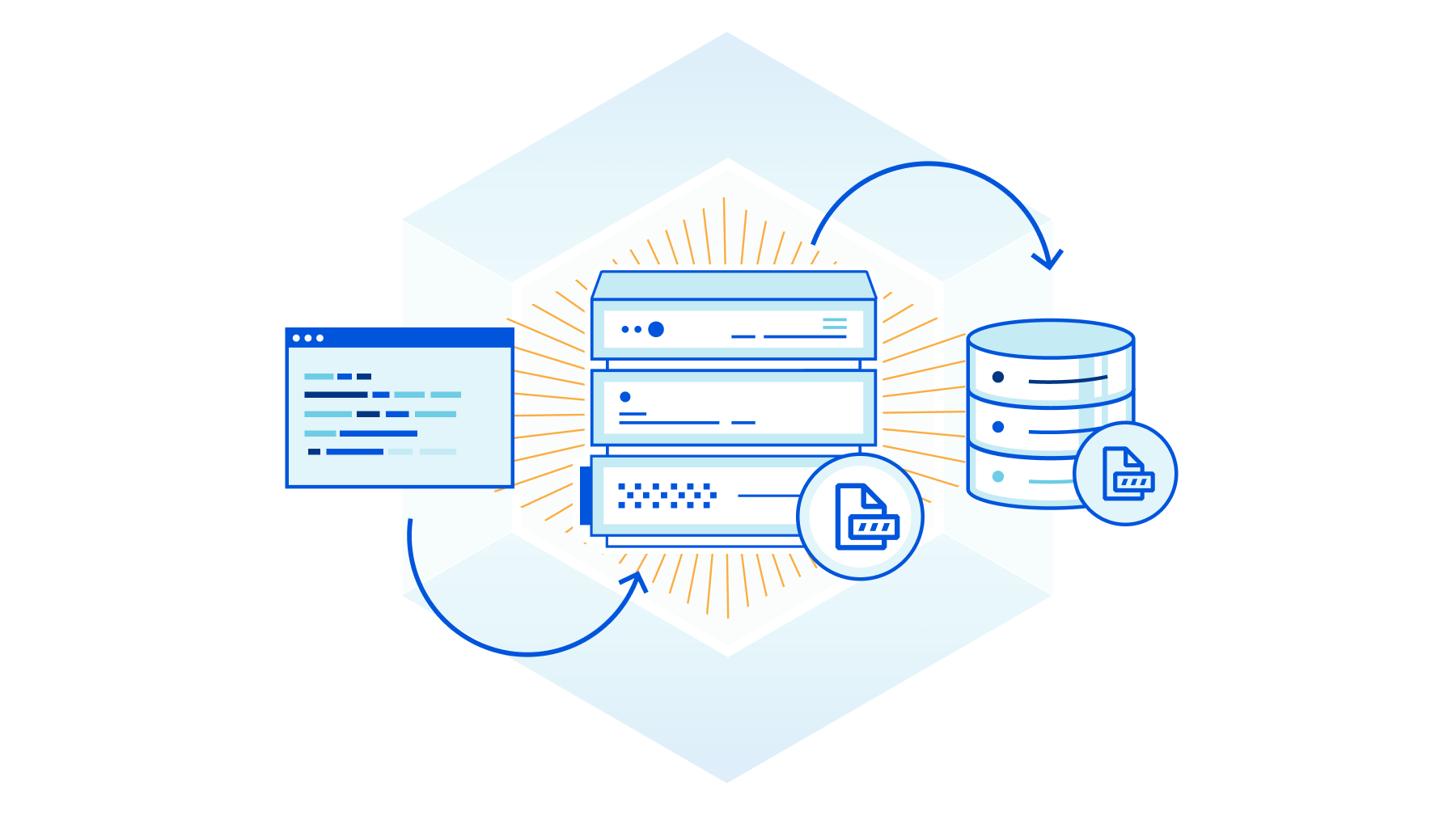Author Archives: Ankur Aggarwal
Author Archives: Ankur Aggarwal
Cloudflare’s SASE platform is on a mission to strengthen our platform-wide support for hostname- and domain-based policies. This mission is being driven by enthusiastic demands from our customers, and boosted along the way by several interesting engineering challenges. Today, we’re taking a deep dive into the first milestone of this mission, which we recently released in open beta: egress policies by hostname, domain, content category, and application. Let’s dive right in!
Customers use our egress policies to control how their organization's Internet traffic connects to external services. An egress policy allows a customer to control the source IP address their traffic uses, as well as the geographic location that their traffic uses to egress onto the public Internet. Control of the source IP address is especially useful when accessing external services that apply policies to traffic based on source IPs, using IP Access Control Lists (ACLs). Some services use IP ACLs because they improve security, while others use them because they are explicitly required by regulation or compliance frameworks.
(That said, it's important to clarify that we do not recommend relying on IP ACLs as the only security mechanism used to gate Continue reading

Cloudflare Gateway, our secure web gateway (SWG), now supports the detection, logging, and filtering of network protocols regardless of their source or destination port. Protocol detection makes it easier to set precise policies without having to rely on the well known port and without the risk of over/under-filtering activity that could disrupt your users’ work. For example, you can filter all SSH traffic on your network by simply choosing the protocol.
Today, protocol detection is available to any Enterprise user of Gateway and supports a growing list of protocols including HTTP, HTTPS, SSH, TLS, DCE/RPC, MQTT, and TPKT.
As many configuration planes move to using RESTful APIs, and now even GraphQL, there is still a need to manage devices via protocols like SSH. Whether it is the only management protocol available on a new third party device, or one of the first ways we learned to connect to and manage a server, SSH is still extensively used.
With other legacy SWG and firewall tools, the process of blocking traffic by specifying only the well known port number (for example, port 22 for SSH) can be both insecure and inconvenient. For example, if you used SSH Continue reading


Before identity-driven Zero Trust rules, some SaaS applications on the public Internet relied on the IP address of a connecting user as a security model. Users would connect from known office locations, with fixed IP address ranges, and the SaaS application would check their address in addition to their login credentials.
Many systems still offer that second factor method. Customers of Cloudflare One can use a dedicated egress IP for this purpose as part of their journey to a Zero Trust model. Unlike other solutions, customers using this option do not need to deploy any infrastructure of their own. However, not all traffic needs to use those dedicated egress IPs.
Today, we are announcing policies that give administrators control over when Cloudflare uses their dedicated egress IPs. Specifically, administrators can use a rule builder in the Cloudflare dashboard to determine which egress IP is used and when, based on attributes like identity, application, IP address, and geolocation. This capability is available to any enterprise-contracted customer that adds on dedicated egress IPs to their Zero Trust subscription.
In today’s hybrid work environment, organizations aspire for more consistent security and IT experiences to manage their employees’ traffic Continue reading


As part of CIO week, we are announcing a new integration between our DNS Filtering solution and our Partner Tenant platform that supports parent-child policy requirements for our partner ecosystem and our direct customers. Our Tenant platform, launched in 2019, has allowed Cloudflare partners to easily integrate Cloudflare solutions across millions of customer accounts. Cloudflare Gateway, introduced in 2020, has grown from protecting personal networks to Fortune 500 enterprises in just a few short years. With the integration between these two solutions, we can now help Managed Service Providers (MSPs) support large, multi-tenant deployments with parent-child policy configurations and account-level policy overrides that seamlessly protect global employees from threats online.
Managed Service Providers (MSPs) are a critical part of the toolkit of many CIOs. In the age of disruptive technology, hybrid work, and shifting business models, outsourcing IT and security operations can be a fundamental decision that drives strategic goals and ensures business success across organizations of all sizes. An MSP is a third-party company that remotely manages a customer's information technology (IT) infrastructure and end-user systems. MSPs promise deep technical knowledge, threat insights, and tenured expertise across a variety Continue reading


Today, we’re announcing support for customer provided certificates to give flexibility and ease of deployment options when using Cloudflare’s Zero Trust platform. Using custom certificates, IT and Security administrators can now “bring-their-own” certificates instead of being required to use a Cloudflare-provided certificate to apply HTTP, DNS, CASB, DLP, RBI and other filtering policies.
The new custom certificate approach will exist alongside the method Cloudflare Zero Trust administrators are already used to: installing Cloudflare’s own certificate to enable traffic inspection and forward proxy controls. Both approaches have advantages, but providing them both enables organizations to find the path to security modernization that makes the most sense for them.
When deploying new security services, organizations may prefer to use their own custom certificates for a few common reasons. Some value the privacy of controlling which certificates are deployed. Others have already deployed custom certificates to their device fleet because they may bind user attributes to these certificates or use them for internal-only domains.
So, it can be easier and faster to apply additional security controls around what administrators have deployed already–versus installing additional certificates.
To get started using your own certificate first upload your root certificates via API Continue reading


Today, we’re excited to announce upcoming support for HTTP/3 inspection through Cloudflare Gateway, our comprehensive secure web gateway. HTTP/3 currently powers 25% of the Internet and delivers a faster browsing experience, without compromising security. Until now, administrators seeking to filter and inspect HTTP/3-enabled websites or APIs needed to either compromise on performance by falling back to HTTP/2 or lose visibility by bypassing inspection. With HTTP/3 support in Cloudflare Gateway, you can have full visibility on all traffic and provide the fastest browsing experience for your users.
HTTP is one of the oldest technologies that powers the Internet. All the way back in 1996, security and performance were afterthoughts and encryption was left to the transport layer to manage. This model doesn’t scale to the performance needs of the modern Internet and has led to HTTP being upgraded to HTTP/2 and now HTTP/3.
HTTP/3 accelerates browsing activity by using QUIC, a modern transport protocol that is always encrypted by default. This delivers faster performance by reducing round-trips between the user and the web server and is more performant for users with unreliable connections. For further information about HTTP/3’s performance advantages take a look at Continue reading


Today, we are highlighting how Cloudflare enables administrators to create security policies while using dedicated source IPs. With on-premise appliances like legacy VPNs, firewalls, and secure web gateways (SWGs), it has been convenient for organizations to rely on allowlist policies based on static source IPs. But these hardware appliances are hard to manage/scale, come with inherent vulnerabilities, and struggle to support globally distributed traffic from remote workers.
Throughout this week, we’ve written about how to transition away from these legacy tools towards Internet-native Zero Trust security offered by services like Cloudflare Gateway, our SWG. As a critical service natively integrated with the rest of our broader Zero Trust platform, Cloudflare Gateway also enables traffic filtering and routing for recursive DNS, Zero Trust network access, remote browser isolation, and inline CASB, among other functions.
Nevertheless, we recognize that administrators want to maintain the convenience of source IPs as organizations transition to cloud-based proxy services. In this blog, we describe our approach to offering dedicated IPs for egressing traffic and share some upcoming functionality to empower administrators with even greater control.
Source IPs are still a popular method of verifying that traffic originates from a known organization/user when Continue reading

SSH (Secure Shell Protocol) is an important protocol for managing remote machines. It provides a way for infrastructure teams to remotely and securely manage their fleet of machines. SSH was a step-up in security from other protocols like telnet. It ensures encrypted traffic and enforces per user controls over access to a particular machine. However, it can still introduce a significant security risk. SSH, especially root access, is destructive in the wrong hands (think rm -r *) and can be difficult to track. Logging and securing user actions via SSH typically requires custom development or restrictive software deployments. We’re excited to announce SSH command logging as part of Cloudflare Zero Trust.
Security teams put significant effort into securing SSH across their organization because of the negative impact it can have in the wrong hands. Traditional SSH security consists of strong authentication, like certificate based authentication, and tight controls on who has “root” access. Additionally, VPNs and IP allow lists are used to further protect a machine from being publicly accessible to the Internet. The security challenges that remain are visibility and potential for lateral movement.
SSH commands to a remote machine are end-to-end encrypted, which means Continue reading


Today, we’re excited to announce new capabilities to help customers make the switch from hardware firewall appliances to a true cloud-native firewall built for next-generation networks. Cloudflare One provides a secure, performant, and Zero Trust-enabled platform for administrators to apply consistent security policies across all of their users and resources. Best of all, it’s built on top of our global network, so you never need to worry about scaling, deploying, or maintaining your edge security hardware.
As part of this announcement, Cloudflare launched the Oahu program today to help customers leave legacy hardware behind; in this post we’ll break down the new capabilities that solve the problems of previous firewall generations and save IT teams time and money.
In order to understand where we are today, it’ll be helpful to start with a brief history of IP firewalls.
The first generation of network firewalls were designed mostly to meet the security requirements of private networks, which started with the castle and moat architecture we defined as Generation 1 in our post yesterday. Firewall administrators could build policies around signals available at layers 3 and 4 of the OSI model Continue reading


At Cloudflare, we believe that you shouldn’t have to compromise privacy for security. Last year, we launched Cloudflare Gateway — a comprehensive, Secure Web Gateway with built-in Zero Trust browsing controls for your organization. Today, we’re excited to share the latest set of privacy features available to administrators to log and audit events based on your team’s needs.
Cloudflare Gateway helps organizations replace legacy firewalls while also implementing Zero Trust controls for their users. Gateway meets you wherever your users are and allows them to connect to the Internet or even your private network running on Cloudflare. This extends your security perimeter without having to purchase or maintain any additional boxes.
Organizations also benefit from improvements to user performance beyond just removing the backhaul of traffic to an office or data center. Cloudflare’s network delivers security filters closer to the user in over 250 cities around the world. Customers start their connection by using the world’s fastest DNS resolver. Once connected, Cloudflare intelligently routes their traffic through our network with layer 4 network and layer 7 HTTP filters.
To get started, administrators deploy Cloudflare’s client (WARP) on user devices, whether those devices are macOS, Windows, iOS, Android, Continue reading